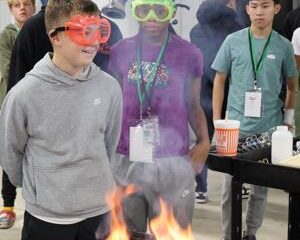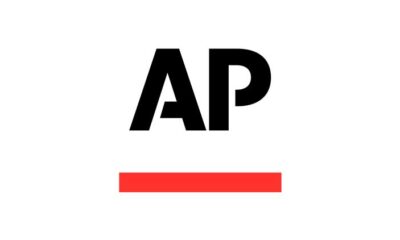Education
Clark County School District Faces Enrollment Decline Amid School Choice Growth

The Clark County School District (CCSD) is experiencing a notable decline in student enrollment, with projections indicating fewer than 286,000 students for the current academic year. This figure represents a significant drop from the peak of over 330,000 students recorded during the 2018-19 school year. The current enrollment level is the lowest since the 2004-05 school year, raising concerns about the district’s ability to meet educational needs as Clark County’s population has surged from 1.7 million in 2004 to over 2.4 million in 2024.
Several factors contribute to this decline, with the rise of school choice options being a primary influence. Many families are opting for alternatives such as charter schools, which are publicly funded but managed independently. Charter schools enjoy greater operational flexibility and are held accountable for their performance, creating a competitive environment for student enrollment. Unlike traditional public schools, charter schools must actively demonstrate their effectiveness in educating students. As a result, those that fail to perform well can be closed, a measure rarely applied to conventional public schools.
Enrollment in charter schools within Clark County has increased dramatically. Between the 2019-20 and 2024-25 school years, the number of students attending these institutions surged by 26 percent, reaching over 64,000 students in the previous year. This figure is comparable to the total enrollment of the Washoe County School District, the second-largest district in Nevada.
The trend extends beyond charter schools, indicating a broader shift in parental preferences towards homeschooling and private education. According to the Institute for Education Policy at Johns Hopkins University, approximately 6 percent of children in Nevada were homeschooled during the 2023-24 school year—more than double the rate before the pandemic. Additionally, around 22,000 students attended private schools in the same period. Collectively, these options suggest that over 100,000 students in Nevada are now receiving education outside of traditional public schools.
This trend can be seen as a significant educational achievement in a state that has faced challenges in improving educational outcomes. Families are actively pursuing the best educational environments for their children, even at the potential cost of time and finances.
In light of these developments, many observers argue that a reevaluation of educational policies is necessary. They suggest that Democratic legislators should reconsider their opposition to school choice and explore ways to expand educational options in collaboration with the state government. Currently, Governor Joe Lombardo supports broadening educational choices, while some Democratic leaders advocate for imposing stricter regulations on charter schools.
The evolving landscape of education in Clark County reflects broader national discussions about school choice and accountability. As families continue to seek diverse educational opportunities, the implications for public school systems and policymakers are profound, prompting a need for innovation and responsiveness to community needs.
-

 Technology5 months ago
Technology5 months agoDiscover the Top 10 Calorie Counting Apps of 2025
-

 Health2 months ago
Health2 months agoBella Hadid Shares Health Update After Treatment for Lyme Disease
-

 Health3 months ago
Health3 months agoErin Bates Shares Recovery Update Following Sepsis Complications
-

 Technology4 months ago
Technology4 months agoDiscover How to Reverse Image Search Using ChatGPT Effortlessly
-

 Technology1 month ago
Technology1 month agoDiscover 2025’s Top GPUs for Exceptional 4K Gaming Performance
-

 Technology2 months ago
Technology2 months agoElectric Moto Influencer Surronster Arrested in Tijuana
-

 Technology5 months ago
Technology5 months agoMeta Initiates $60B AI Data Center Expansion, Starting in Ohio
-

 Technology5 months ago
Technology5 months agoRecovering a Suspended TikTok Account: A Step-by-Step Guide
-

 Health4 months ago
Health4 months agoTested: Rab Firewall Mountain Jacket Survives Harsh Conditions
-

 Lifestyle5 months ago
Lifestyle5 months agoBelton Family Reunites After Daughter Survives Hill Country Floods
-

 Technology4 months ago
Technology4 months agoHarmonic Launches AI Chatbot App to Transform Mathematical Reasoning
-

 Technology3 months ago
Technology3 months agoUncovering the Top Five Most Challenging Motorcycles to Ride





















